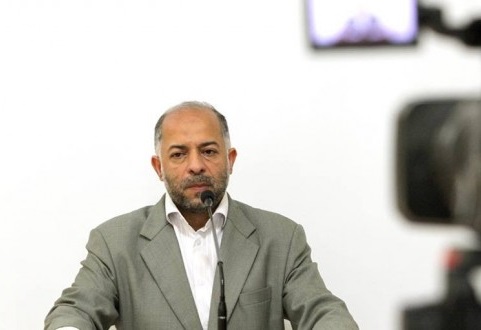The family of 27-year-old Abdulazziz Musa Alabbar announced the death of their son on April 18th, 2014 due to an injury he sustained from a tear-gas grenade shot to the head. He also sustained wounds from bird shot gun pellets in the same area. Abdulazziz was shot at on the 23rd of last February, he was admitted to hospital and remained there for nearly 2 months until he passed away from his injuries. However, the Bahraini Authority is refusing to issue a death certificate for Abdulazziz Alabbar with the real reasons of death, keeping his corpse in detention for 22 days, as of the date of this report.
On the 1st of April 2014, Hussain Sharaf died in mysterious circumstances in the village of Eker. According to relatives who were near to the site of the incident, a blast was heard from where the 19-yearl-old was before his death.
In a separate incident, Ali Abbas, 19, and Ahmed Almusajjin, 17, died in mysterious circumstances in the village of Miqsha on April 19th, 2014. The residents in the area said they heard a blast from the car the two were with a third man who was wounded. The Liberties and Human Rights Department (LHRD) in Al Wefaq National Islamic Society called for an independent investigation into the incidents, by an impartial commission.

Separately, the LHRD in Al Wefaq documented 837 sporadic protests, in April alone, in different villages across Bahrain. The security forces repressed around 195 of these protests, causing 58 injuries, most of which resulted from targeting protesters with bird-shot-gun. Some of the documented injuries were a result of aiming tear-gas canisters to protesters’ bodies. The security forces also threw canisters near or inside homes, this can be classified under collective punishment.
The security forces’ unjustified misuse of arms injured two journalists, one working for Reuters and the other for the German News Agency. The journalists were injured during police crackdown on the funeral of Hussain Sharaf in Eker village on April 3rd, 2014.

The LHRD has been able to document 174 raids of homes and other places. According to inhabitants, all raids were carried out without presenting legal permission. A number of households, whose homes have been raided by the police, said doors and other property were broken during the raids. The Bassiouni report had considered such behavior in home raids to be “terror-inspiring”, especially to children. Most of the raids are carried out during late night hours while women are in sleep wear and without head cover.
Regarding arrests of protesters during April, the LHRD documented a total number of 170, 29 of whom were children, some were subjected to torture and mistreatment in streets. Statistics indicate that most arrests in April took place during home raids and which summed up to 89. While street arrests totaled up to 42 and arrests from checkpoints totaled up to 15. Six were arrested through summons, while the details of the remaining 18 cases of arrests are unknown.
At least 20 cases of vandalism of private property have been documented. Most of the damaged properties were civilian cars damaged by tear-gas grenades randomly fired in residential areas during crackdown on protests. The LHRD has also documented 12 cases in which private belongings were confiscated by the police, most were cell phones taken after arrest of citizens.
During the past month, the LHRD received 17 complaints of torture and cruel treatment. One youth was arrested and beaten with batons and knives. He was given some injection and thrown in a farm.
In regards to mistreatment, a number of prisoners in Jau have been on a hunger strike in protest to the abuse they were subjected to. The prisoners were beaten, insulted and their hair was shaved off. Some prisoners told their families that they fell unconscious while they were on hunger strike. The National Institution for Human Rights received the complaints on 26th April, 2014. The Public Prosecution Office received the same complaints on 28-29th April 2014.
The administration of the Jau prison banned the families from visiting their jailed relatives. The prisoners were banned from calling their families, too. These measures come within the regime’s systematic tightening on prisoners, as was confirmed by the Independent Commission of Inquiry in November 2011.
In a separate matter, Ayatollah Sheikh Hussain Najati was deported to the capital of Beirut on April 23rd, 2014. Ayatollah Najati was called in for interrogation several times. He also received numerous threatening messages from security officials. Ayatollah Najati was stripped off his citizenship along with 30 other Bahrainis back in December 2012.
The Central Investigations Department (CID) in Bahrain also called in Sayed Hadi Almusawi, the head of Al Wefaq’s Liberties and Human Rights Department, for questioning on April 14th, 2014. Almusawi was questioned about the press conference he held on April 9th, where he announced the statistics on torture, mistreatment and other rights violations during March 2014. It is worth mentioning that the CID administration did not allow Almusawi’s lawyer into his interrogation session. On April 24th, 2014, Almusawi appeared before the prosecution office, for the same reason, with his lawyer after the Interior ministry filed a lawsuit accusing him of “insulting an official body”.

Two females named Rayhanna Almusawi and Nafisa Alasfoor were sentenced to 5 years in what is known as the Formula1 case. 12 defendants were sentenced to life (25 years in prison), and two others to 15 years, for accusations of spying for external parties. Another 9 were also sentenced to life for accusations of being involved in explosions. The above diagram shows the number of year handed to defendants. The sentences add up to more than 1700 years in prison. The courts acquitted 5 defendants during the month.
Liberties and Human Rights Department
Al Wefaq National Islamic Society
May 10th, 2014
/149

